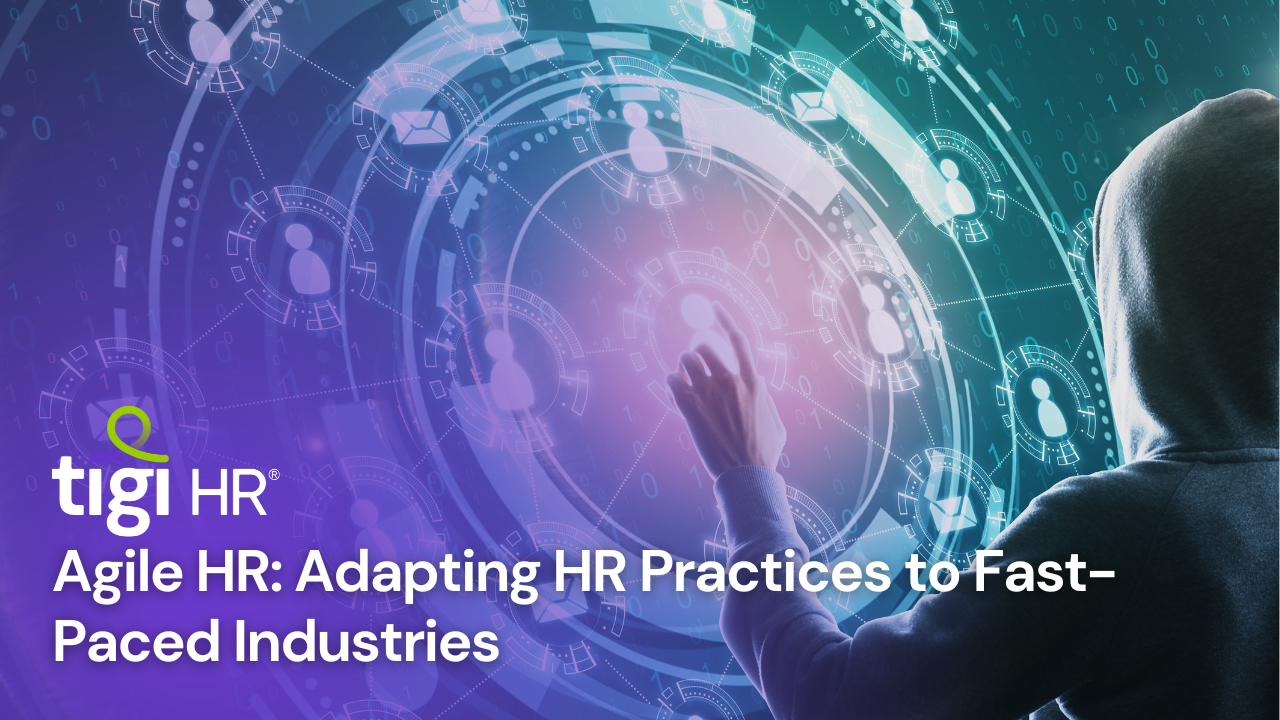In the dynamic landscape of today’s industries, adaptability is key to success. Traditional Human Resources (HR) practices, often characterized by rigid structures and inflexible processes, are facing a growing challenge in keeping up with the fast-paced nature of modern businesses. This article explores the concept of Agile HR, shedding light on how organizations can embrace agility in their HR practices to effectively navigate the ever-changing business terrain.
Understanding Agile HR
Agile HR is a paradigm shift from the conventional HR approach. It aligns HR practices with the principles of agility, which emphasize responsiveness, flexibility, and continuous improvement. In essence, Agile HR strives to create an HR ecosystem that can swiftly adapt to industry shifts, technological advancements, and evolving employee expectations.
Key Components of Agile HR
Flexible Workforce Planning: In agile industries, workforce needs can change rapidly. Agile HR incorporates dynamic workforce planning, enabling organizations to scale up or down as needed. This approach ensures that companies have the right talent in the right place at the right time.
Continuous Learning and Development: Agile HR prioritizes employee growth. It fosters a culture of continuous learning, providing opportunities for upskilling and reskilling. By investing in employee development, organizations can better equip their workforce to tackle emerging challenges.
Data-Driven Decision-Making: Data analytics play a pivotal role in Agile HR. HR professionals leverage data to identify trends, forecast workforce needs, and make informed decisions. This data-driven approach enhances HR’s ability to respond to industry shifts proactively.
Agile Recruitment: Traditional recruitment processes can be slow and cumbersome. Agile HR streamlines recruitment by using agile methodologies, such as Scrum or Kanban, to speed up the hiring process and ensure that the best talent is brought on board swiftly.
Empowering Self-Management: Agile HR empowers employees by granting them more autonomy and decision-making authority. This fosters a sense of ownership and accountability, aligning with the principles of agile organizations.
Benefits of Agile HR
Enhanced Adaptability: Agile HR equips organizations to swiftly adapt to market changes, regulatory shifts, and emerging technologies.
Improved Employee Engagement: By investing in employee development and empowerment, Agile HR can boost engagement levels, resulting in higher retention rates and increased productivity.
Cost Efficiency: Streamlined processes and data-driven decision-making can lead to cost savings in recruitment, training, and other HR functions.
Competitive Advantage: Organizations that embrace Agile HR gain a competitive edge by responding faster to market opportunities and challenges.
Talent Attraction: Agile HR practices can make a company more attractive to top talent, as professionals increasingly seek flexible and dynamic work environments.
Conclusion
In today’s fast-paced industries, the role of HR is evolving. Agile HR is not just a trend; it’s a necessity. By embracing agility in HR practices, organizations can effectively navigate the ever-changing business landscape, attract and retain top talent, and ultimately secure their position as leaders in their industries. In this era of rapid change, Agile HR is the compass that points the way forward.
Recruitment Agency Business is Thriving in India: Explore TIGI HR’s Franchise Opportunity
As India’s job market expands and organizations seek competent talent, the recruitment industry continues to witness rapid growth. Investing in a recruitment agency franchise can be a profitable venture, and TIGI HR offers a compelling opportunity for aspiring entrepreneurs. With its established brand reputation, proven business model, extensive network, ongoing support, and flexibility, TIGI HR’s franchise offers a solid foundation for success in the recruitment industry.
Find trusted recruitment agencies: Click here





